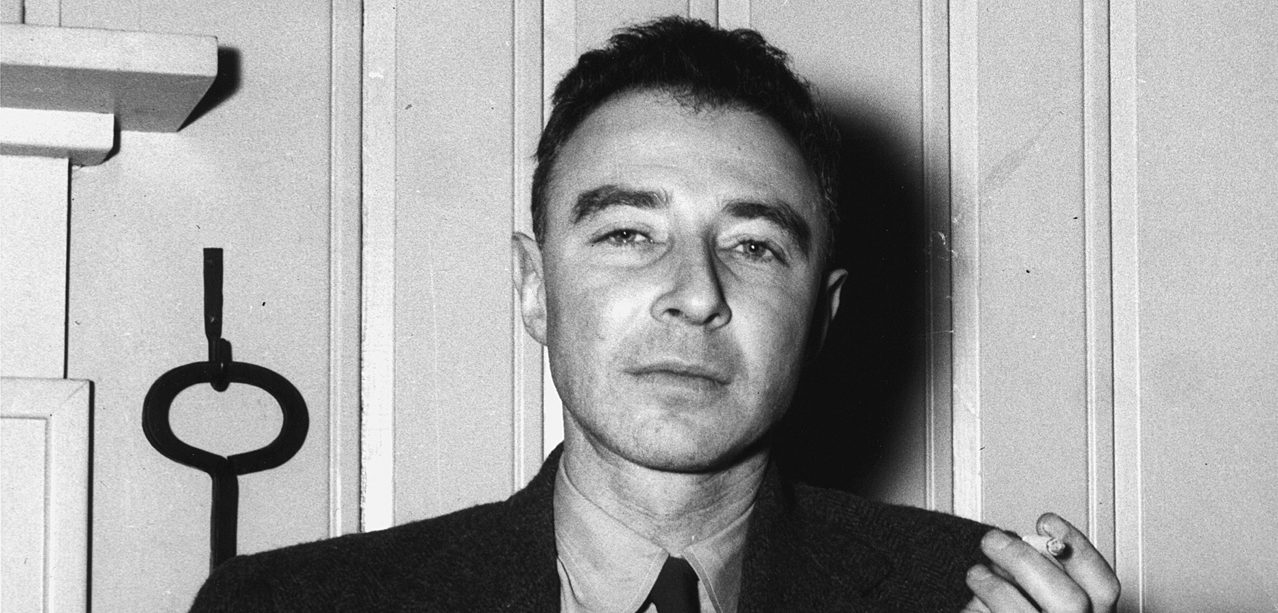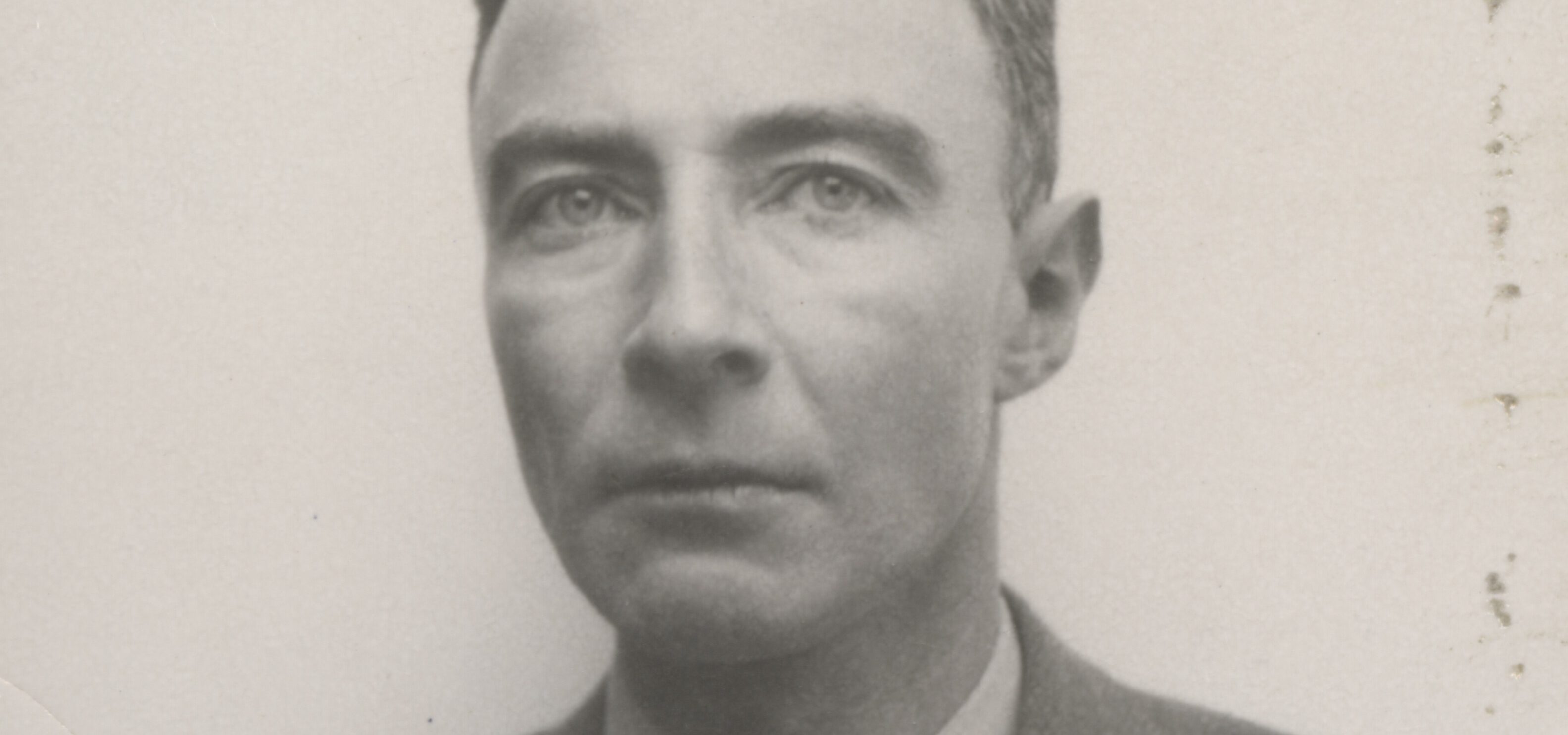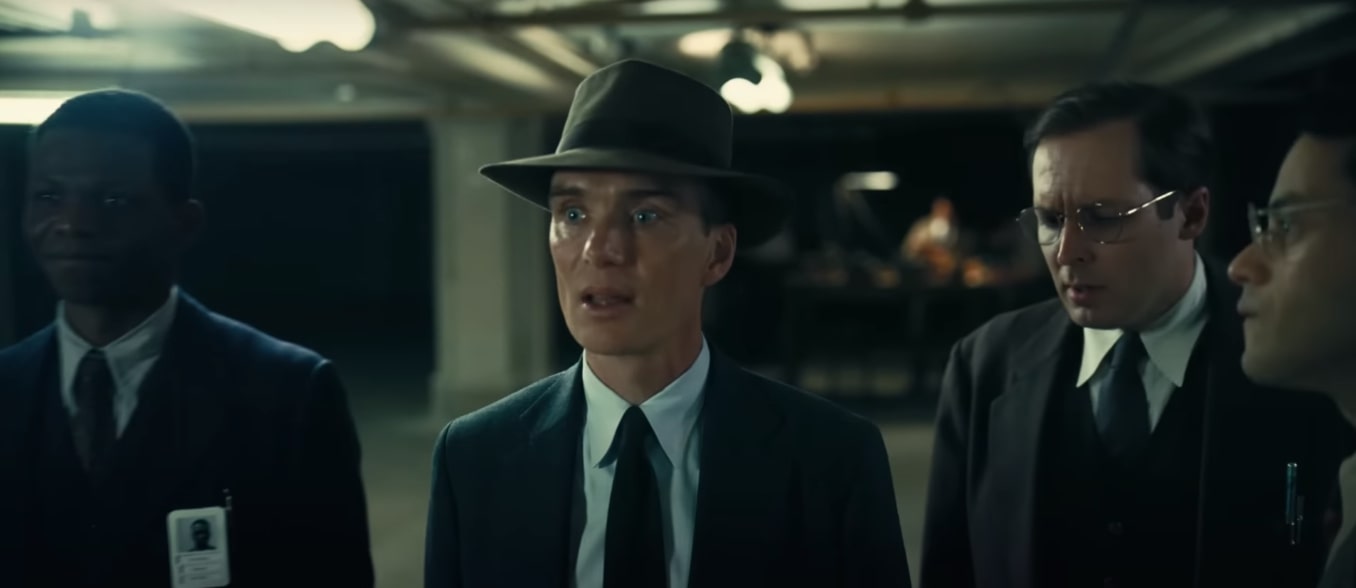Christopher Nolan’s ‘Oppenheimer’ follows the life of J. Robert Oppenheimer, forcing on his work on the Manhattan Project and the development of the atomic bomb. The film traces the protagonist’s life, familiarising the audience with his personal life and taking us into his mind, which becomes increasingly unsure about creating something that could cause destruction on such a level.
In one of the scenes in the movie, Oppenheimer talks about the guilt he feels after the bomb he created kills hundreds and thousands of people in Hiroshima and Nagasaki. He is invited to meet President Truman, who wants to congratulate him for a job well done. However, Truman meets a distraught Oppenheimer who worries that he has the blood of innocents on his hands. This is when Truman calls him a crybaby, which might seem a bit rude, to say the least, under the given circumstances. Did this interaction between Oppenheimer and Truman really happen? Did the President call him a crybaby? Let’s find out.
The Truth Behind President Truman’s ‘Crybaby’ Remark

Nolan’s ‘Oppenheimer’ is based on the Pulitzer Prize-winning book, ‘American Prometheus: The Triumph and Tragedy of J. Robert Oppenheimer’ by Kai Bird and Martin J. Sherwin. The book mentions the meeting between Truman and Oppenheimer and the use of the word “crybaby.” However, the timeline between the actual events and what’s shown in the film has been condensed to create a dramatic effect.
The success of the Manhattan Project was a huge thing for Oppenheimer, who is said to have celebrated the first bombing in Hiroshima and regretted not having “developed the bomb in time to use it against the Germans.” However, his feelings changed drastically when the bomb dropped in Nagasaki, which the scientist considered utterly unnecessary. He carried this distraught to his meeting with Truman on October 25, 1945.
By now, Oppenheimer was convinced that atomic bombs would not do any good to the world. He also knew that the Soviets, or someone else, would soon develop their own technology, further fueling the nuclear war. When he met Truman, he intended to persuade the President to create a dialogue about nuclear weapons on an international level. However, Truman wanted Oppenheimer’s support in passing a bill to give over the control of atomic energy to the US Army.
During their conversation, Oppenheimer eventually lamented that he had blood on his hands. How exactly Truman responded remains a point of contention, especially because, in the following years, the President presented different versions of the story. In one version, Truman gave his handkerchief to Oppenheimer, asking him to wipe his hands of the blood. He is said to have been frustrated by Oppenheimer’s remark and later commented: “Blood on his hands, damn it, he hasn’t half as much blood on his hands as I have. You just don’t go around bellyaching about it.” This is also when he called the scientist a “crybaby.”

In another account of the story, Truman told Oppenheimer to let him worry about it because the blood was on his hands, not the scientist’s. According to the book, Truman told his Under Secretary of State, Dean Acheson, that he didn’t want to see Oppenheimer in his office ever again. He is also said to have used to word “crybaby scientist” in a letter he wrote months after the meeting to Acheson. He said that Oppenheimer “spent most of his time wringing his hands and telling me they had blood on them because of the discovery of atomic energy.” Reportedly, Truman’s annoyance with Oppenheimer’s remark is also attributed to the fact that the President wanted to take responsibility for the bombing, but the scientist’s words took that away from him.
Whatever his opinion of Oppenheimer, Truman honored him with a presidential citation and a Medal for Merit in 1946. Meanwhile, Oppenheimer continued to talk about banning nuclear weapons and resigned as the director of Los Alamos at the war’s end. The scene between him and Truman is supposed to represent his feelings on the matter in a nutshell. Even if it has been dramatized to serve the movie’s plot, the entire incident still captures a real event.
Read More: Is Rami Malek’s David Hill Based on a Real Person?


You must be logged in to post a comment.